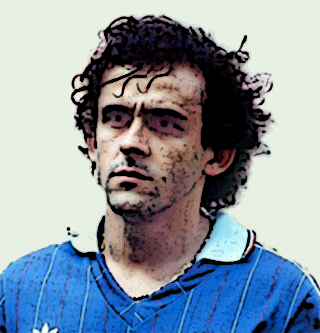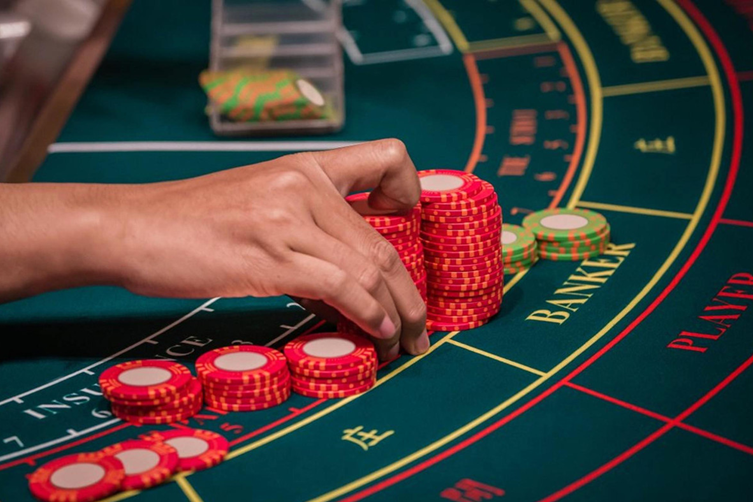To make our top ten list as fair as possible, we ranked the players according to their skills, titles, and influence on the game.
 10. Franz Beckenbauer
10. Franz Beckenbauer
Years Active: 1964-1983
National team: Germany (103 caps, 14 goals)
Clubs: Bayern Munich, New York Cosmos, Hamburger SV
Franz Beckenbauer is a famous German footballer highly regarded both for his achievements and his influence on football. He is ranked as the greatest football defender of all time.
Beckenbauer played sweeper, a soccer position he redefined into someone who can both stop the opposition’s attack and lead the team’s scoring. Elegant on the field, his technical skills and its influence on his teammates and the game earned him the nickname of Der Kaiser (The Emperor).
Beckenbauer has one of the most impressive records in club and national levels. With Bayern Munich, the club where he spent most of his career, he won the European Champions Cup in 1974, 1975, and 1976. With the German national football team, he won the 1972 European Nations Championship and the 1974 World Cup, each time as captain. He also won the most prestigious individual award twice, the Ballon d’Or (Best European Footballer of the Year), in 1972 and 1976.
After his playing career ended in 1983, he embarked into a successful career as manager, winning the 1990 World Cup with the German national team. In foreign media, the German national team is regularly described as (Die) Mannschaft (literally meaning the team). The nickname Die Adler (the eagles) or Deutsche Adler (German eagles) is also used as their nickname.
Aside from the Brazilian Mario Zagallo, Beckenabauer is the only footballer who has won the World Cup both as a player and a coach.
9. Michel Platini
Years Active: 1972-1987
National team: France (72 caps, 41 goals)
Clubs: Nancy, Saint-Etienne, Juventus
Michel Platini is a French football player who played as an attacking midfielder during his career. Reputed as one of the best free kick specialists in history, Platini is the principal architect of the successes of the French soccer squad and Juventus in the eighties.
Platini was a playmaker with a great vision of the game and an innate instinct for goal-scoring. His incredible football technique and his aptitude to be a leader earned him the nickname of Le Roi (The King, in French)
Platini is the winner of, among other titles, the 1985 European Cup with Juventus and the 1984 Euro Cup with France. During the European Football Championship of 1984, he scored 9 goals in 5 matches, making him the tournament’s top scorer of all time—a record which still stands today. Among his numerous individual awards is the Ballon d’Or, which he won three consecutive times, from 1983 to 1985.
A year after retiring in 1987, he became the coach of France’s national team. He ended his career as manager for France in 1992, when the team was eliminated in the first round of the 1992 European Championship. In 2007, he won the UEFA presidency, a position he holds until now.
 8. Eusebio da Silva Ferreira
8. Eusebio da Silva Ferreira
Years Active: 1961-1978
National team: Portugal (64 caps, 41 goals)
Clubs: Benfica, five different clubs in the North American Soccer League (NASL), CF Monterrey
Eusebio da Silva Ferreira is a Mozambique-born Portuguese football icon, more popularly known as Eusebio. He was the top player of Benfica and the Portuguese national team of the 1960s.
Eusebio was noted for his great skill, agility, and scoring ability. As a striker he was fast and cunning, able to perform amazing stunts. With the Portuguese national team, he scored 41 goals in 64 appearances. His club performance with Benfica is even more phenomenal, bagging 317 goals in 301 matches!
Eusebio established his career in Benfica, with which he became a European Football Cup winner in 1962. He also helped the Portuguese soccer squad win third place in the 1966 World Cup and finished the tournament as top scorer with nine goals. As recognition of his talent, he was given the most prestigious individual award in Europe, the Ballon d’Or in 1965. He also won two European Golden Boots (1968, 1973), the award given to the footballer who scored most goals in all the top leagues in Europe in one season.
Unfortunately, Eusebio had to cut his international career short in 1974 because of a knee injury. But he continued playing in club level and went to North America where he won an NASL title with Toronto Croatia and, later, a Mexican league title with CF Monterrey.
7. Bobby Charlton 
Years Active: 1954-1975
National team: England (106 caps, 49 goals)
Clubs: Manchester United, Preston North End
Bobby Charlton was the leader of England’s 1966 World Cup-winning team and was a member of the Busby Babes, the famous Manchester lineup of the 1950s. He is considered as the best English footballer of all time.
Charlton had an incomparable finesse as a ball passer and scorer, capable accurate chip shots and strong low-flying shots. Although he was never assigned as striker, he still holds the most number of goals scored for England: 49 goals in 106 appearances.
Aside from the 1966 World Cup championship, Charlton also won the 1968 European Cup and several domestic championships with Manchester United. Among his individual honors are the FIFA World Cup Golden Ball (1966), and the Ballon d’Or (1966).
After leaving his long-time club Manchester United, Charlton began a manager-player career with lower-division team Preston North End but it turned out to be unsuccessful. He left Preston at the end of the 1974-75 season and became a pundit for the British Broadcasting Corporation (BBC). He is also involved in several charitable organizations.
 6. Johan Cruyff
6. Johan Cruyff
Years Active: 1964-1984
National team: Netherlands (48 caps, 33 goals)
Clubs: Ajax, Barcelona, Los Angeles Aztecs, Washington Diplomats, Feyenoord
Johan Cruyff was an unparalleled midfield player of the 1970s. He was the most prominent figure on the successes of Ajax, Barcelona, and the Dutch football team during that decade.
Cruyff prefigured the modern player in the 70s with his physical and technical prowess. Despite his frail build, which earned him the nickname “El Flaco” (The Skinny), he had an endurance that very few players could keep up with. With his incredible speed, he was able to leave defenders behind. He was also one of the most gifted technicians of all time, capable of sensational dribbling moves and feints.
Cruyff is a remarkably successful club player, having won the European Cup three consecutive times (1971, 1972, & 1973), and the Intercontinental Cup (1972) with Ajax. When he moved to Barcelona, he led the club in reconquering the Liga title in 1974, after a drought of 14 years. Cruyff was the captain of the incredible Total Football team of Netherlands in the 1970s. But despite his talent, he never won any championship with the Dutch national team, having lost in the 1974 World Cup final against West Germany
After playing, he became a successful football manager for his two former clubs Ajax and Barcelona. He won the European Cup Winner’s Cup with both teams and the European cup with Barcelona in 1992. As manager, Cruyff has always encouraged an attacking and lively football.
5. Ferenc Puskas
Years Active: 1943-1966
National team: Hungary (85 caps, 84 goals), Spain (4 caps, 0 goal)
Clubs: Budapest Honved, Real Madrid
Ferenc Puskas is the greatest Hungarian footballer of all time and is highly distinguished for his consistency as a scorer. A legendary Real Madrid player, he was also a member of the successful Hungarian football team of the 1950s commonly known as the Mighty Magyars.
Despite being short and stocky, Puskas was the most prolific striker of his generation. As club player, this left-footed legend scored an incredible 625 goals in 631 matches and as a member of Hungary’s national soccer team, he struck 84 goals in 85 appearances. FIFA recognized these achievements in 2004 by naming him Top Scorer of the Century.
As member of the Magical Magyars, he won gold medal at the 1952 Olympic football event and finished runner-up in the 1954 World Cup in Switzerland. With Real Madrid, he won 3 European Cups and was awarded La Liga’s best striker four times.
After his retirement, Puskas became a football coach, a career which brought him to every continent in the world. When he died of Alzheimer’s in 2006, Hungary declared his funeral date as a day of national mourning to honor the great footballer he was.
 4. Ronaldo de Lima
4. Ronaldo de Lima
Years Active: 1993-2011
National team: Brazil (97 caps, 62 goals)
Clubs: Cruzeiro, PSV Endhoven, Barcelona, Inter Milano, Real Madrid, AC Milan, Corinthians
Ronaldo de Lima is a Brazilian football striker regarded as one of the most gifted scorers of all time. A two-time World Cup winner, he scored the most goals for the competition with 15, a record that remains unbeaten so far.
Ronaldo is known for his speed, power, and reliability in front of the goal. His background in indoor soccer gave him exceptional ability to maneuver in small spaces. He can shoot accurately with either foot and his scoring prowess often earned him comparison with Pele. His fragile body subjected him to three major knee injuries, which caused him to lose much of his flare and speed. But his mental toughness allowed him to always come back on the field as a deadly goal scorer.
Nicknamed Il Fenomeno, Ronaldo has won numerous titles with the Brazilian national team. He won the FIFA World Cup in 1994 and 2002, and with 62 goals in 97 appearances, he is Brazil’s second-highest scorer of all time, just next to Pele. He also holds the record for most number of World Cup goals with 15.
Ronaldo never won a Champions League title despite playing for many big European clubs. Among other titles, he won the Spanish and Dutch league championship, the UEFA Cup Winner’s Cup (with Barcelona in 1997) and the UEFA Cup (with Internazionale in 1998). Together with Zidane, he is the only player who has won the FIFA Player of the Year three times.

3. Zinedine Zidane
Years Active: 1988-2006
National team: France (108 caps, 31 goals)
Clubs: Cannes, Bordeaux, Juventus, Real Madrid
Zinedine Zidane is a French football legend who is considered as one of the most brilliant technicians of all time. He was a playmaker for the French national team and for prestigious European clubs like Juventus and Real Madrid.
As an attacking midfielder, Zidane is known for his ball control, which inspired admiration by teammates during practice and awe by fans during games. He has an exceptional technical mastery, able to make the ball move whichever way he wants it. His dribbling and passing sets him apart from other players. He proved to be a very complete player, with his ability to head the ball, take free kicks and penalty kicks, and finish in style.
As a player, Zidane won all the major trophies football can offer. With the French national team, he won 1998 World Cup (where he scored two goals in the final) and the 2000 European football championship. In club level, he won one Champions League (2002, with Real Madrid) and two Intercontinental Cups (1996 with Juventus; 2002 with Real Madrid). Among his individual awards are the FIFA Player of the Year, which he won three times and the 1998 Ballon d’Or.
The final game of Zidane’s career was the 2006 World Cup final, where he was ejected after head butting Italian defender Materazzi. In 2009, he joined the management of Real Madrid as advisor to club president Florentino Perez.
 2. Diego Maradona
2. Diego Maradona
Years Active: 1976-1997
National team: Argentina (91 caps, 34 goals)
Clubs: Argentino Juniors, Boca Juniors, Barcelona, Napoli, Sevilla FC, Newell’s Old Boys
Diego Maradona was born in Villa Fiorito, a province of Buenos Aires in Argentina. He is an Argentinean football genius whose career is marked with triumphs and controversies. A fantastic playmaker, he led Argentina to a World Cup title in 1986.
Maradona was one of the best technicians of football. A dribbler of peerless ability, he puzzled defenders of his era with a particularly fine touch on the ball. His small size gave him the advantage to change directions quickly and make him almost unstoppable. However, Diego Maradona was capable not only of the best but also of the worst. His ability to perform extraordinary feats is coupled by his tendency to sink into violence, lose control of himself, and even cheat during the game. All these aspects show why his career is both brilliant (the 1986 World Cup title) and pathetic (expulsion from the 1994 World Cup after a failed drug test).
The years that followed his 1986 World Cup triumph were the best for Maradona. Playing for Napoli, he brought the club to the Serie A championship in 1987 and 1990 and the UEFA Cup in 1989. Before he came, Napoli never won any Italian title and because of what he has done for the club, he is adored by fans as if he were a religious icon up to this day.
The end of Maradona’s career was marred by addiction to cocaine. Yet Maradona was able to recover a significant place in the Argentine national team in 2008 when he was appointed manager. He stayed with the team until Argentina’s 4-0 defeat to Germany in the 2010 World Cup quarterfinal.

1. Pele/Edson Arantes do Nascimento
Years Active: 1956-1977
National team: Brazil (92 caps, 77 goals)
Clubs: Santos, New York Cosmos
Pele is not only the greatest football player of all time, he is also hailed by the International Olympic Committee as the “Athlete of the Century” in 1999. He played as striker for Brazil and is the only player who has won the World Cup three times.
Pele was a complete player, possessing both technical and athletic skills, intelligence, speed, precise passing, and the sense for goals. On the field, he was able to perform technical moves with great ease. He was an achiever and also an innovator, perfecting stunts such as the bicycle kick. Pele is the greatest player of all time because of his impact on football. From his professional debut at 16 to his retirement, he has eclipsed all other players of his era. We can say that during his career, there was Pele and only Pele.
Pele’s career records are barely imaginable. He scored a total of 1,281 goals in 1,363 matches, a world record that still stands. Six times he finished a game with five goals, 30 times with four goals, and 92 times with three goals. His most memorable goal was his 1000th, scored in Maracana Stadium through a penalty kick. It created an indescribable uproar, even fans of the opposing team joined in cheering the Brazilian football legend.
Pele won numerous titles from the two professional clubs he played for, Santos and New York Cosmos. He won the Intercontinental Cup (1962 & 1963), Copa Libertadores (1962 & 1963), NASL Championship (1977), and the championship of São Paulo (11 times from 1950-60).
Upon his retirement, the Brazilian ambassador to the U.N. remarked Pelé had “spent 22 years playing soccer, and in that time he has done more for goodwill and friendship than all of the ambassadors ever appointed.” After his playing career, he was engaged in many humanitarian activities, such as being ambassador of goodwill for UNICEF. He also functions as an ambassador for the game of football, traveling around the world to grace major tournaments until now.



